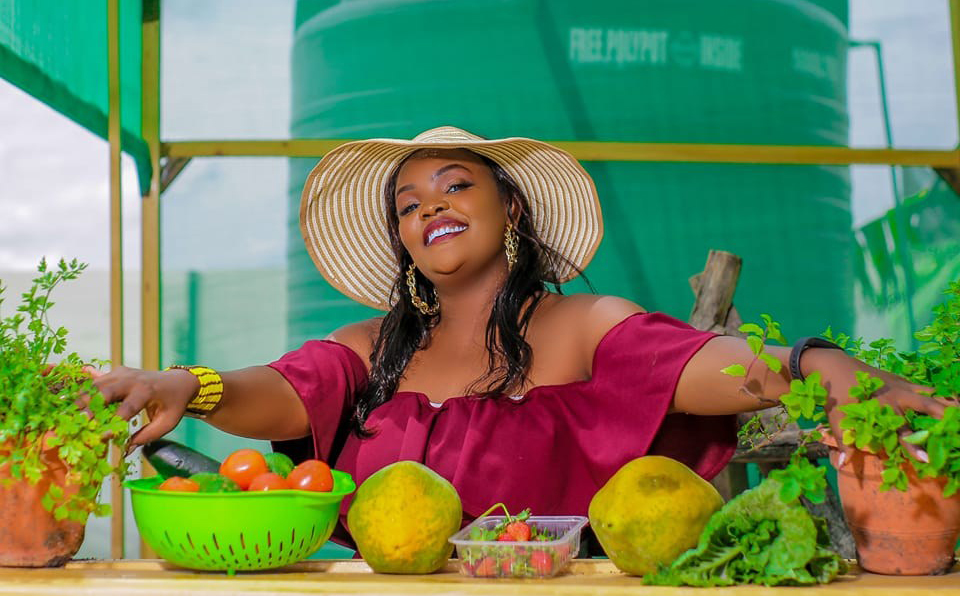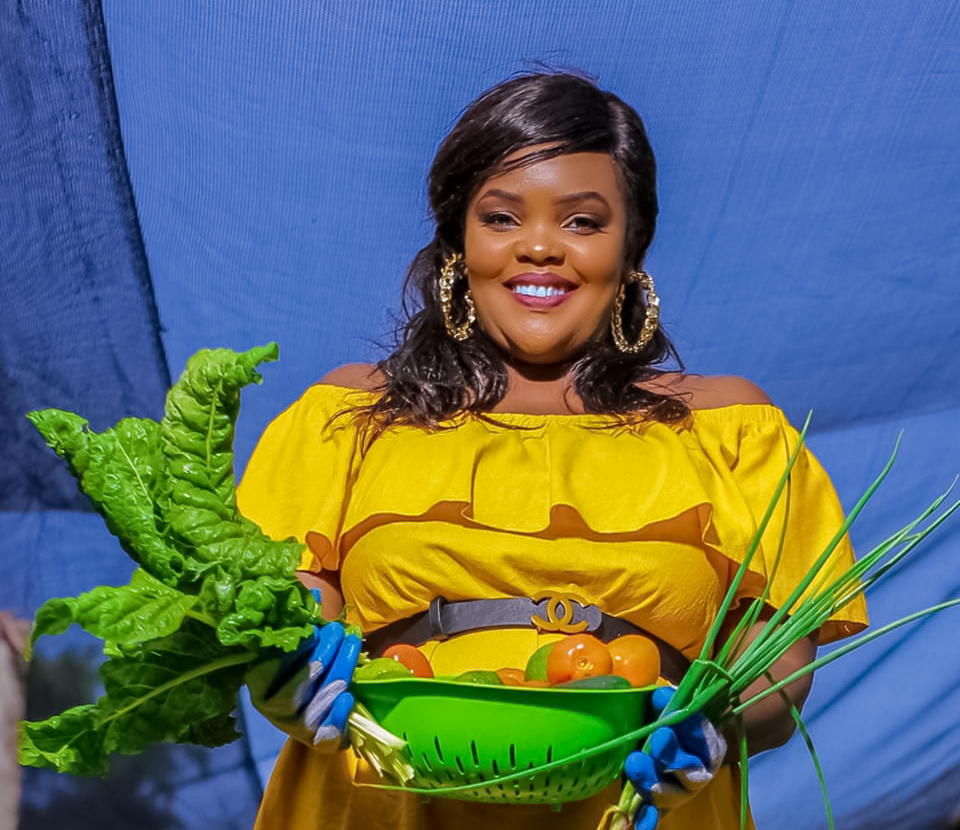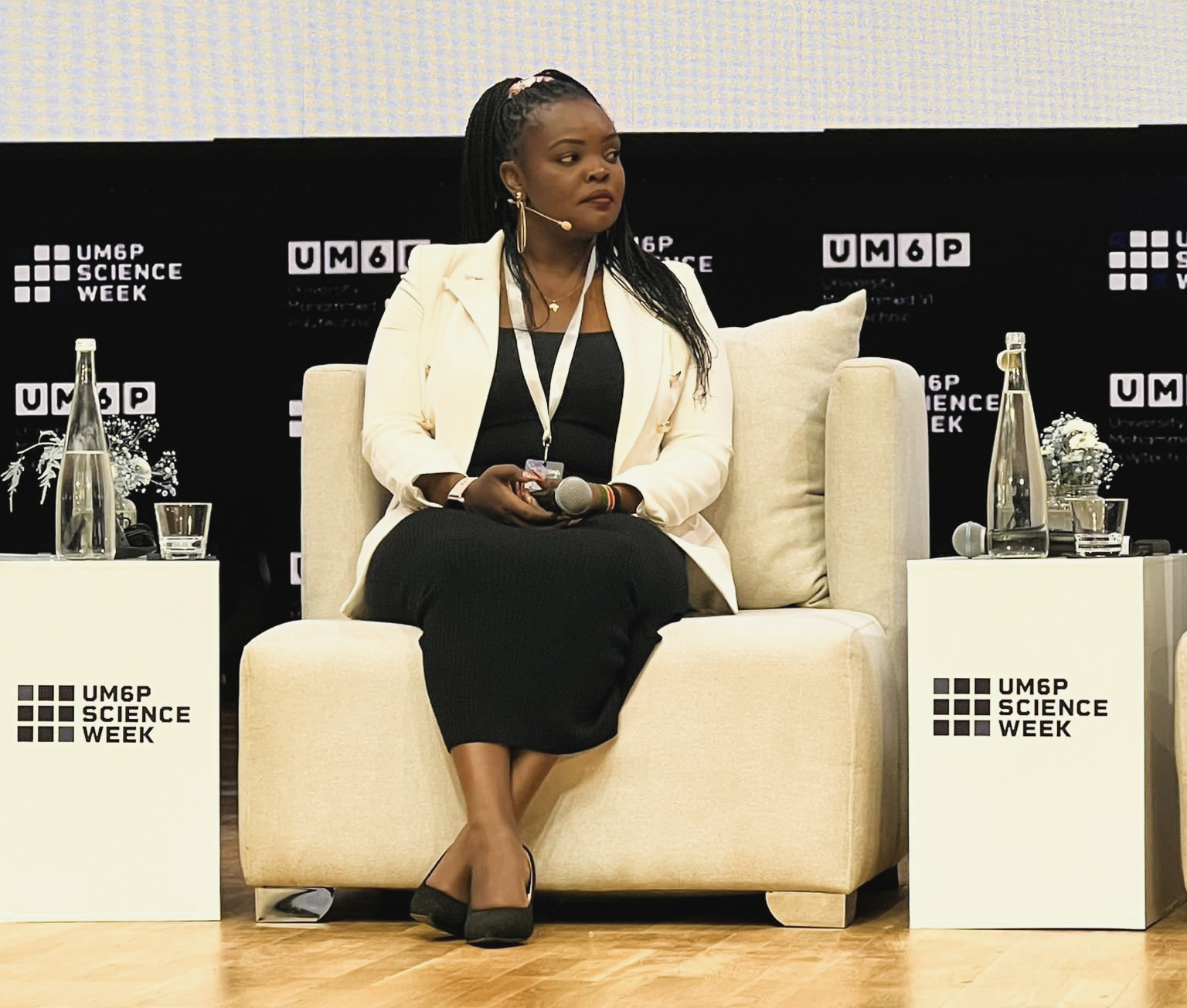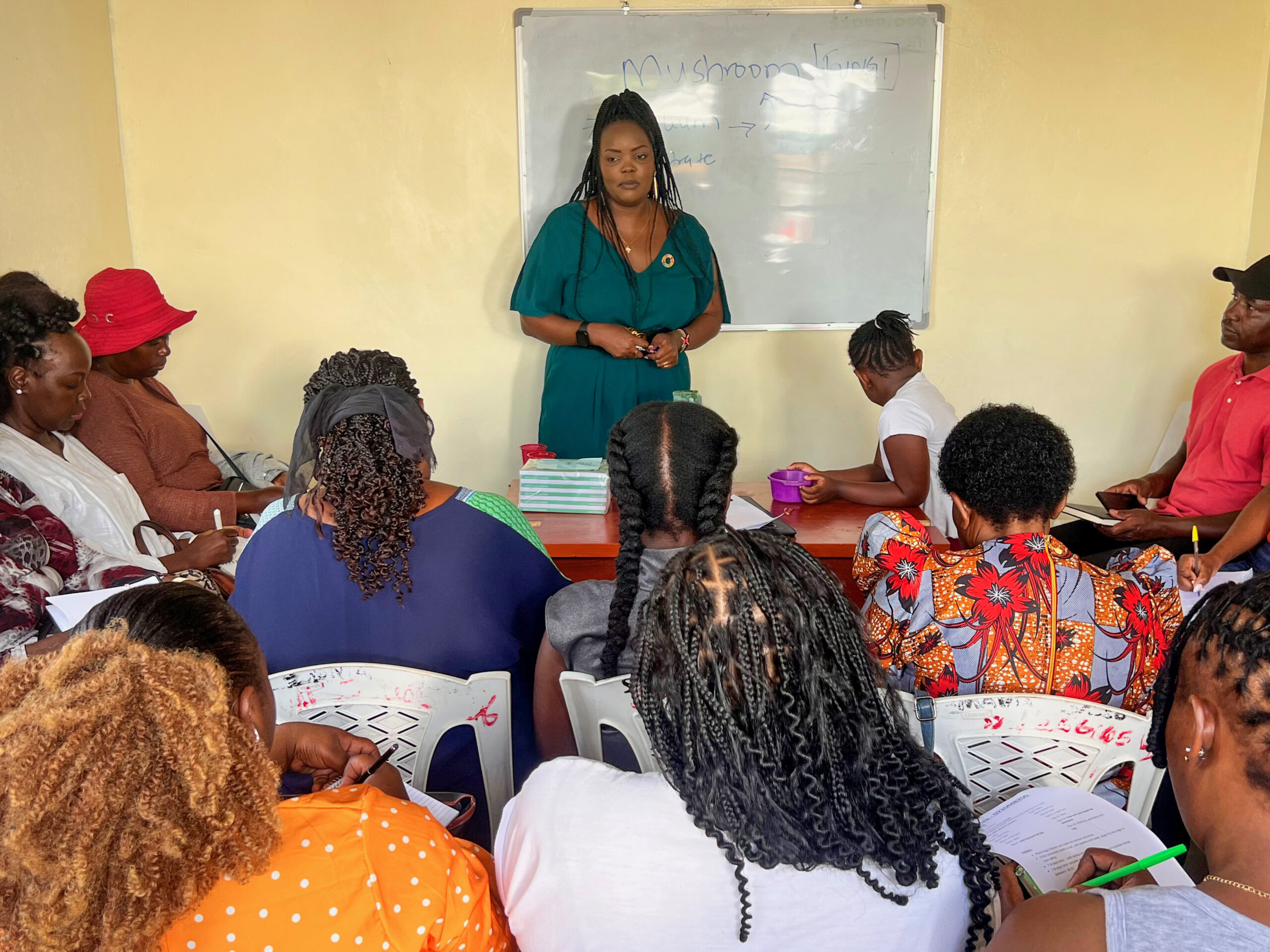
Wangari Kuria, Founder and CEO of Farmer on Hearth Ltd. at her farm in Kitengela, Kenya. Picture: Fowl Story Company
It’s mid-morning in Kitengela, in Kajiado County, south of Nairobi and Wangari Kuria’s farm is buzzing with exercise. In a single space, a farm supervisor checks dragon fruit seedlings whereas in one other space, a bunch of would-be farmers seated below a tent are keenly taking notes.
The group of 40 are being given an introduction to mushroom farming by Kuria. They’ve gathered from all components of the nation.
Kuria, popularly often known as Farmer on Hearth, is the Founder and CEO of Farmer on Hearth Ltd, an organisation that gives farming abilities for farmers in Africa, particularly ladies.
“My focus is empowering small-scale farmers as a result of I’m a small-scale farmer. After we say youth and ladies ought to get extra into agriculture, they don’t have numerous belongings, therefore this coaching helps,” she defined.
Kuria was born and raised in Nyahururu, Nyandarua County, well-known for its agricultural productiveness with crops together with maize, beans, Irish potatoes, cabbages, spinach, kale and peas grown within the space to fertile soils and beneficial local weather.
Fed by nutrient-rich volcanic soils, Kenya’s recent greens are exported around the globe. “I grew up in Nyahururu, and principally everybody there’s a farmer, so naturally, these abilities have been in me,” Kuria stated.

Wangari Kuria, Founder and CEO of Farmer on Hearth Ltd. Picture: Wangari Kuria
After being unexpectedly retrenched from the true property trade, she moved out of the town, to rural Kitengela. Left with out an revenue or perhaps a option to spend her day, she remembered her mom’s kitchen backyard and determined to create one for herself.
“I remembered my mum had a kitchen backyard, so I arrange one to chop on prices. And because the market is way from the place I keep, I killed two birds with one stone by making a kitchen backyard,” she narrated.
In keeping with the Federation of Kenya Employers, the nation’s unemployment charge stands at 12.7%, with the youth demographic (15-34 years outdated) constituting 35% of the inhabitants, experiencing the best unemployment charge at 67%.
Being among the many first individuals to maneuver into her new neighbourhood, lots of her neighbours had idle land. Her Maasai neighbours principally practised livestock manufacturing. She requested round to listen to if she might farm some floor.
“I might go to my neighbours’ plots and ask them if I might develop one thing to verify their lands will not be grabbed,” Kuria recounted
She quickly realised there was a spot available in the market for indigenous greens.
“Lots of people have been excited to see that it was recent. Plenty of the greens bought round right here come from far and they’re perishable. So I received an excellent market, and it inspired me to maintain going and increasing,” she remembered.

Wangari Kuria, Founder and CEO of Farmer on Hearth Ltd. Picture: Wangari Kuria
Being a graduate of United States Worldwide College Africa (USIU), Kuria’s classmates have been very inquisitive about studying how she was rising crops, so she began posting clips on social media, narrating her story and educating individuals the way to farm. She then began her YouTube web page, “Farmer on Hearth,” which now incorporates over 300 movies.
“I didn’t need to be a farmer similar to my mother or grandmother, I needed it to have a twist to it, so social media grew to become my factor to make it extra attention-grabbing,” she stated.
Being an city farmer, with a small house, Kuria focuses primarily on high-value crops similar to oyster and button mushrooms, strawberries, black soldier fly larvae, eucalyptus, Azolla and dragon fruits. She dries a lot of her produce with photo voltaic dryers and packages them into completely different merchandise.
“I focus extra on small-scale holder farming as a result of it’s 80% of Kenya’s manufacturing. Our GDP is serviced by individuals with small items of land. I’m in search of how we are able to develop into extra environment friendly, and productive and lift our ranges of getting cash in small areas.”
Kuria not solely grows high-value crops, however she additionally trains farmers and aspiring farmers. She presents on-line periods on Telegram and month-to-month on-farm coaching. She costs 2000 shillings (US$13) for on-line coaching and 4850 shillings (US$33) for on-farm coaching. She has skilled over 12,000 individuals by her on-line coaching and a couple of,400 individuals by classes performed on her farm.
“Our farms are additionally primarily for coaching. We don’t simply need to develop crops, we additionally need to empower different individuals. I need different individuals to know that they will go into agriculture and make revenue of their yard, conveniently,” she defined.
“From the coaching, (what) I’ve learnt is you don’t have to start out massive, it’s about rising from one step to a different,” stated Elizabeth Gathoni, considered one of Kuria’s trainees.
Kuria has additionally travelled the world as a voice for different farmers. She has been closely concerned in activism, talking on behalf of small-scale farmers. She has travelled to South Africa, Paris, China, the USA and different international locations.

Wangari Kuria, Founder and CEO of Farmer on Hearth Ltd. throughout a panel session on the UM6P Science Week. Picture: Wangari Kuria
“I really feel like farmers would not have a voice, but they’re gatekeepers of our planet. We don’t see farmers represented within the legislature and different departments. So. I need to push that farmers must be seen, farmers must be proud and they need to farm with dignity.”
In 2023, Kuria gained the World Citizen Prize, an accolade that honours activists and advocates for his or her proactive efforts in making optimistic contributions to their communities.
“I used to be very completely happy to win the award. For me, it’s an indication that we’re in the proper course. And farmers which can be getting nearer to their aim. It’s not that I’m the very best farmer, it’s to say that I need to see extra farmers, Kenyan and African, profitable.”
Kuria has additionally helped deal with challenges confronted by women-led agribusinesses in her neighborhood.
“Plenty of ladies are simply at residence doing nothing, and so they lack funds within the household therefore they haven’t any say. In January 2023, it was very dry in Kitengela, and numerous Maasai ladies have been coming to fetch water in my home. They might complain how the drought was affecting them and their livestock. We began a undertaking with them…” Kuria narrated.

Wangari Kuria speaking to trainees throughout a coaching session at her farm in Kitengela, Kenya. Picture: Fowl Story Company
Kuria and the ladies planted mushrooms. This helped them to complement their diet and when harvested, she helped promote a few of the mushrooms, offering the ladies with further revenue.
Kuria’s farm is totally sustainable. She is acutely aware about rising crops that don’t find yourself being eaten. Any agricultural waste is recycled to make manure or offers meals for BSL (Black Soldier Fly Larvae) or mushrooms. She has an underground tank the place she harvests and reserves over 10,000 litres of water.
“We at all times thought water will likely be there. That isn’t the case anymore. Now we have to begin speaking about water harvesting.”
“Wangari is an individual who actually needs to be taught. Supplied it’s about farming, she actually grabs the chance and goes for it” Kimiti Wa Gitau, an agricultural present host and guide, stated of the farmer.
Kuria is now taking her experiences and information to a different stage as an writer. She has written two books specifically, “The right way to Begin Farming – A Information from Small Scale to Revenue Making Agribusiness“, and “This Lady is on Hearth“. She is presently engaged on her third e book.
Story Credit score: Ann Mbuthia for Fowl Story Company


